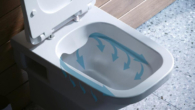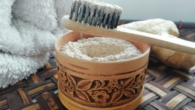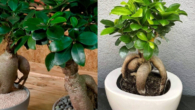
Where does tinnitus come from and what to do about it
0
Blood pressure knocks, otitis presses with low frequencies, and spasm mysteriously clicks. Prostoway editors found out what the phantom sounds are saying.
According to statistics, at least 10% of the Earth's inhabitants regularly suffer from tinnitus. Some doctors believe that the problem is even more widespread, and call it one in five victims.
At the same time, all researchers emphasize that tinnitus (so-called phantom sounds in all their various manifestations) is not an independent diagnosis, but symptom. It can be caused by several reasons.
Inflammation or foreign body
Liquid that has entered the ear, a foreign object, some kind of bug or a banal sulfur plug – all this can cause tinnitus. It can also be caused by enlarged adenoids, all kinds of inflammation, including otitis media (which, however, is difficult to miss due to another symptom – shooting pain). All this causes constant irritation of the eardrum. Most often, such problems are accompanied by noticeable pressure, low-frequency buzzing in the ears.
If the noise is accompanied by dizziness, then the direct path to the ENT: an inflammatory process in the inner ear is possible.
Spasm of the pharynx or middle ear muscles
During a spasm, the muscle attached to the auditory tube contracts sharply and you hear a click. Or perhaps not just one, but a somewhat rhythmic one. Such spasms are a kind of nervous tic that occurs inside the body. As a rule, they manifest themselves during talking, chewing, swallowing and are not noticeable at other times. Such a situation is not a serious problem. But if the clicks are unpleasant for you, you need to deal with them.
Cardiovascular problems
High blood pressure or atherosclerosis (plaques in the blood vessels) are often “heard” as pulsating sounds that mimic the heartbeat. Pulsations should be taken seriously: circulatory disorders can cause a stroke.
Osteochondrosis and other changes in the cervical spine
Such problems often lead to impaired blood flow. The auditory nerve and the back of the brain react to the lack of blood supply, and you begin to hear something like a rattling sound.
Age-related hearing changes
Tinnitus in all its manifestations – clicking, pulsating, buzzing, rustling – often becomes the first symptom of hearing loss in older people.
Stress
Although researchers acknowledge that little is known about the impact of stress on the development of tinnitus, this factor is considered one of the possible provocateurs of tinnitus.
Other causes
Here are a number of less common, but no less harmful causes:
- Endocrine disorders.
- Hormonal changes in women.
- Iron deficiency anemia. Iron deficiency impairs the supply of oxygen to the brain with all the resulting problems.
- Excessively strict diets or an unbalanced diet, for example, with a high salt or sugar content.
- Otosclerosis is the growth of bone tissue in the middle ear, which is accompanied by hearing loss and often audio effects.
- Abuse of some drugs toxic to the auditory nerve. Including some antibiotics, diuretics, salicylates.
- Tumors and other brain disorders.
How to treat tinnitus
The good news: most cases of tinnitus pass by themselves and do not require special treatment. If phantom sounds haunt you regularly, don't do anything, but consult a therapist: he will help or refer you to a specialist.
At the appointment, the doctor will ask questions that must be answered as completely and truthfully as possible. In particular, the questions may concern the medicines and supplements you take, your lifestyle and diet, the health of your older relatives (otosclerosis itself is often a hereditary disease), etc. You will also most likely have a series of hearing and jaw and neck mobility tests. Sometimes the doctor may prescribe a CT scan or MRI.
Most likely, based on the results of the visit, you will be recommended:
- Anti-cold drugs and manipulations designed to relieve you from inflammation and swelling in the nasopharynx.
- Ear washing to remove sulfur plugs, excess water, and foreign objects from it.
- Relaxants are drugs that relax the muscles. They will help get rid of clicking caused by muscle spasms. In some cases, surgical intervention may be necessary.
- Drugs that improve blood circulation in the inner ear and brain. These “noise remedies” will restore the necessary vascular tone, relieving you of pulsating problems.
- Physiotherapy and psychotherapy. For example, compact devices – sources of white noise that block clicks, hums and pulsations – help a lot.
- Change in diet.
- Massages. These manipulations, firstly, help relieve stress, and secondly, improve blood circulation, including in the cervical spine.
It doesn't matter which ear is ringing. If the noise repeats, be sure to see a doctor. Because a defective primary disease can result in the most unpleasant consequences, up to hearing loss and stroke.









Leave a Reply